The Wise-Ass Doesn’t Fall Far From the Tree
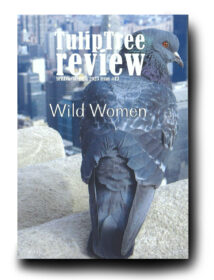 The Spring / Summer issue of the Tulip Tree Review has been released and once again Tulip Tree Publishing has selected one of my memoirs for inclusion in the book. This issue is dedicated to “Wild Women” and it just so happens that the wildest woman I ever met was my mother. Those of you who prefer the tactile feel of paper can find the book on Amazon at https://rb.gy/uiof0
The Spring / Summer issue of the Tulip Tree Review has been released and once again Tulip Tree Publishing has selected one of my memoirs for inclusion in the book. This issue is dedicated to “Wild Women” and it just so happens that the wildest woman I ever met was my mother. Those of you who prefer the tactile feel of paper can find the book on Amazon at https://rb.gy/uiof0My father was a reserved man but that didn’t affect me. In my faith I am considered a wise-ass because my mother was a wise-ass.
To meet my mother was to be instantly won over by her oversized personality and generous sense of humor. She was a product of the great state of Indiana and in the parlance of her Hoosier upbringing, my mother Tessie was a hoot. She waged war on the safe, the conventional, and the reserved. Laughter was her ammunition and she always left the chamber empty.
Children were particularly drawn to my mother, as they found her to be colorful, entertaining, and prone to mischief. They invariably looked upon her with a wide-eyed expression of shock, awe, and adoration. At our community picnics, my mother was the one surrounded by the neighborhood kids. She didn’t know a single chord but you’d find her ferociously strumming a poorly tuned guitar and belting out rockabilly anthems like Does Your Chewing Gum Lose Its Flavor on the Bedpost Overnight. More often than not she forgot the words but she would make up fresh, funnier verse right on the spot. And when she ran out of words, she’d create sounds. When we thought it couldn’t get any funnier, she would start yodeling. That’s right – yodeling, because everyone knows the cornfields of Indiana are so much like the Swiss Alps.
In addition to her role as entertainer, Mom was the family doctor and chief fort builder. Her inexhaustible humor was the balm for our bee stings, measles, and broken bones, but she could also build a fortress out of couch cushions and laundry still warm from the dryer (which she preferred over folding). In her role as head cheerleader, she taught us that no goal was unattainable. Give us a vacant field and a shovel and we’d dig an underground fortress a Kentucky coal miner would envy. Give us a pile of discarded plumbing pipes and a lawnmower from the trash heap and we’d build a motorized contraption capable of transporting us to faraway neighborhoods, or more often, to nearby hospitals. Give us a net, a jar, and a tub and we’d build a zoo with creatures both fuzzy and slimy. It was all we could do to keep the family pets from eating one another.
When I was seven years old our floorboard heating ducts became home to a dozen tiny reptiles after my brother Jeff dropped a glass jar filled with baby snakes that we had captured in the nearby woods. Like fireworks bursting from a Fourth of July rocket, the snakes slithered in every direction and disappeared into the ductwork before we could recapture them. Another parent might have been mortified but my mother swept up the broken glass and sent us outside with a new jar.
One brisk morning Mom thought the family gerbils needed fresh air so she placed their cage near the window. When Jeff and I came home from school on a lunch break, we discovered the gerbils had died from the draft. Jeff was heartbroken when he returned to school that afternoon, but when one of his classmates filled him with false hope he ran home hollering, “They’re not dead! They’re hibernating!”
Mom leapt into action like an E.R. trauma nurse. We watched in wonder as she turned the oven to its lowest temperature, spread the gerbils on a baking sheet and slid them in. She kept the door open so she could slide the tray out, perform CPR on their tiny chests, and then slide the tray back into the oven.
That was the mystical world my mother created. We grew up in an Adventureland where anything was possible and maybe, just maybe, gerbils could be brought back to life. If a bat flew into our living room it became a pet. When a turtle wandered into our backyard, our only bathtub became its new home. It turned out that Mom, the super woman we believed capable of miracles, could not raise the dead, but the idea that she tried made the loss more bearable.
****
Mom had a vocabulary that was all her own and often made up words to suit her audience. Her favorite word was “shit” but when we had company, she cleaned it up by saying “shitáye”, which she claimed was French and therefore much classier. She called my sisters “little shits”. They were twins so they weren’t “big shit” and “little shit”. They were both “little shits”. My older brother Doug was the “big shit”. Apparently, my family was full of shit.
Not only did Mom make up words, she rearranged common expressions, unwittingly creating hilarious juxtapositions. Ask her about her trip to the salon and she would gush, “Oh, they treated me like the Queen of Elizabeth.” (This is particularly amusing to anyone familiar with the industrial wasteland that is Elizabeth, New Jersey).
Perhaps Mom’s greatest perversion of the English language was the way she confused vowels to great, but unintended, comedic effect. Before I brought Caroline home to meet my parents, I told my mother how much my future wife loved her Volvo. When they were introduced, my mother made a point of asking Caroline about her car. My unsuspecting fiancé was understandably caught off guard when Mom kicked off the dinner table conversation with, “So dear, tell me about your Vulva.”
Caroline was busy wiping up the drink she’d spit all over the table, so I stepped in and said, “Well Mom, I’ve put a lot of miles on it but it still gets me where I want to go.”
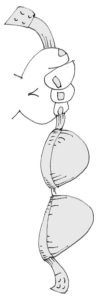 Mom liked to make a grand entrance and the night she met Caroline’s extended family illustrates the shock and awe that tended to follow her into a room. My niece Elysia was newly married when she nervously agreed to host Thanksgiving dinner in her new home. In addition to Elysia’s immediate family, the guest list included her new in-laws from California and my mother. Mom marched into the crowded kitchen and before any introductions could be made, she declared, “I can’t wear this bra another minute!”
Mom liked to make a grand entrance and the night she met Caroline’s extended family illustrates the shock and awe that tended to follow her into a room. My niece Elysia was newly married when she nervously agreed to host Thanksgiving dinner in her new home. In addition to Elysia’s immediate family, the guest list included her new in-laws from California and my mother. Mom marched into the crowded kitchen and before any introductions could be made, she declared, “I can’t wear this bra another minute!”
As the astonished guests watched, Mom’s arms disappeared inside her blouse, a short struggle ensued and like Houdini escaping a strait jacket, her arms burst out of the sleeves with bra in hand.
“Ahh, that’s better.” She then turned to Elysia’s dumbstruck mother-in-law, extended her empty hand and said, “Hi, I’m Tessie. Nice to meet you.” After the bra incident (as it came to be known), my mother settled in for some serious misbehaving.
When my son Christian was in high school, we held a concert in our backyard for his rock ‘n roll band. My mother, short, round, and eighty-something, hobbled on stage between sets and grabbed the microphone. I felt a familiar tingle of unease and thought, “Oh my God. What’s she up to now?”
Like some Borscht Belt comedian from a bygone era, she told a few jokes and then turned to her grandson and said, “I love you honey. This is for you.”
She started to yodel and I found myself magically transported back to those long-ago community picnics. The familiar sensation of shock and awe washed over me, but it was shock and awe with a smile. It felt warm and familiar, like the toasty laundry my mother packed into the couch cushion fortresses she built on snowy days. The crowd rose from their lawn chairs in unison, the adults whooping and whistling, the children wide-eyed and open-mouthed. The thunderous applause that followed interrupted my reverie and I turned back to the stage to see Mom hold her arm out with authority, pause for effect, and then drop the mic.
****
My mother may have liked a grand entrance but she loved a grand exit and she did her best to leave ‘em laughing. Mom was a commanding force of nature, a personality so immense that nothing less than a worldwide pandemic could stop her. In March of 2020 Mom made her final grand entrance into a hospital Coronavirus ward.
Laughter was hard to come by as wailing sirens announced the relentless arrival of fear and hopelessness at emergency room doors. Into this despair, bleary-eyed EMTs wheeled my 90-year-old mother … alone … the comforting presence of her children forbidden. Despite the heart-wrenching circumstances, I wasn’t surprised when the nurse on duty called to say, “Your mom is amazing!” In a voice cracking with emotion, she continued, “She has every nurse in the ward laughing out loud!”
I imagined the scene:
Mom rolls into the hospital on a gurney, an oxygen mask covering her mouth and a nurse urgently checking her vital signs.
“Are you comfortable?” shouts the nurse over the din of the corridor. “Can I get you anything?”
Mom motions for the nurse to come near and weakly pulls the mask from her face.
“Yes dear, I’ll have an extra dry martini with a twist.”
As Mom lay in a deathbed her family was prohibited from visiting, bewildered nurses, overworked social workers and one particularly curious chaplain became the pipeline that funneled information to me and my terrified siblings.
Chaplain Mary introduced herself and said, “You must tell me about your mother.”
I resisted her attempts to draw me into this conversation but I relented when she added, “The nursing staff, the administrators, even the maintenance crew wants to know about the woman who made them laugh when she arrived,”
In time I found myself sharing some of the family lore that comes from a lifetime spent with a misbehaving mother. At first, Chaplain Mary seemed weary and shaken from the carnage of the pandemic, but as I talked on about my mother her demeanor brightened and she surprised me with spontaneous fits of laughter. The sound seemed out of place but soon its magic washed over both of us and we were joined in cathartic relief.
The cause and effect of shared laughter has magnetic appeal, drawing people together in spite of, or sometimes because of, mutual suffering. But there’s an unpredictable balance between humor and grief. Many people believe them to be mutually exclusive, that somehow tears are nobler than laughter and the presence of comedy in the face of suffering is inappropriate. Other people, people like my mother, believe them to be codependent. To Mom, laughter offered deliverance, a life raft in an inhospitable sea. Where we as individuals draw the line between what is funny and what is not, is simply a matter of degree. Humor does not divide us; it is what connects us in our shared humanity. In fact, nine out of ten orthopedists agree that it is the funny bone that separates us from the animals.
Of all the things I learned during the pandemic, the saddest and most telling lesson was that 2020 was an inconvenient time to die. Family members could not get on an airplane to attend services, as it was far too dangerous and irresponsible. Conventional outlets for mourning — church services, funerals, and wakes — were banned for groups of ten or more. Even small services were suspended as funeral homes overflowed and tractor trailers were transformed into makeshift morgues.
For centuries cultures have developed traditions designed to help people cope with grief and hasten the mourning process. Those of us left behind felt deprived and unsure as we struggled to independently process the pain of loss. There was little we could do except cry into our facemasks and wait for the day we might shed our plastic gloves and join hands in celebration of a life filled with laughter, love, and song. It was these qualities that drew people to my mother; that, plus she made a delicious bourbon old-fashioned.
I always knew my mother’s sense of humor insulated her from the boring and the conventional, but what I didn’t know, what it took her death to reveal, was that she used laughter to shield others from her pain. As I revisited Mom’s life it dawned on me that her humor, like the salve for my bee stings, was the balm that would continue to comfort me in the tough days and months to come. In my conversations with Chaplain Mary, I recognized my mother’s gift. Her memory would survive through the stories we tell, but it was the humor she embedded in the psyche of her children that would live on, perhaps for generations to come.
During my last conversation with Chaplain Mary, she said, “Your mother brought light into the darkness. Her laughter and bravery gave hope to a weary and frightened emergency room staff.” We talked on for a few minutes longer, neither of us wanting to let go of the comfort found in shared loss. For several days we had been joined in pain and laughter and I knew that once we hung up Chaplain Mary would fade into a faceless memory.
“The world may have gone mad, Donald, but it’s nice to see you’ve kept your sense of humor. You’re a hoot and I can see the acorn didn’t fall far from the tree.”
A smile crossed my face. “In my family we say, the wise-ass didn’t fall far from the tree.”
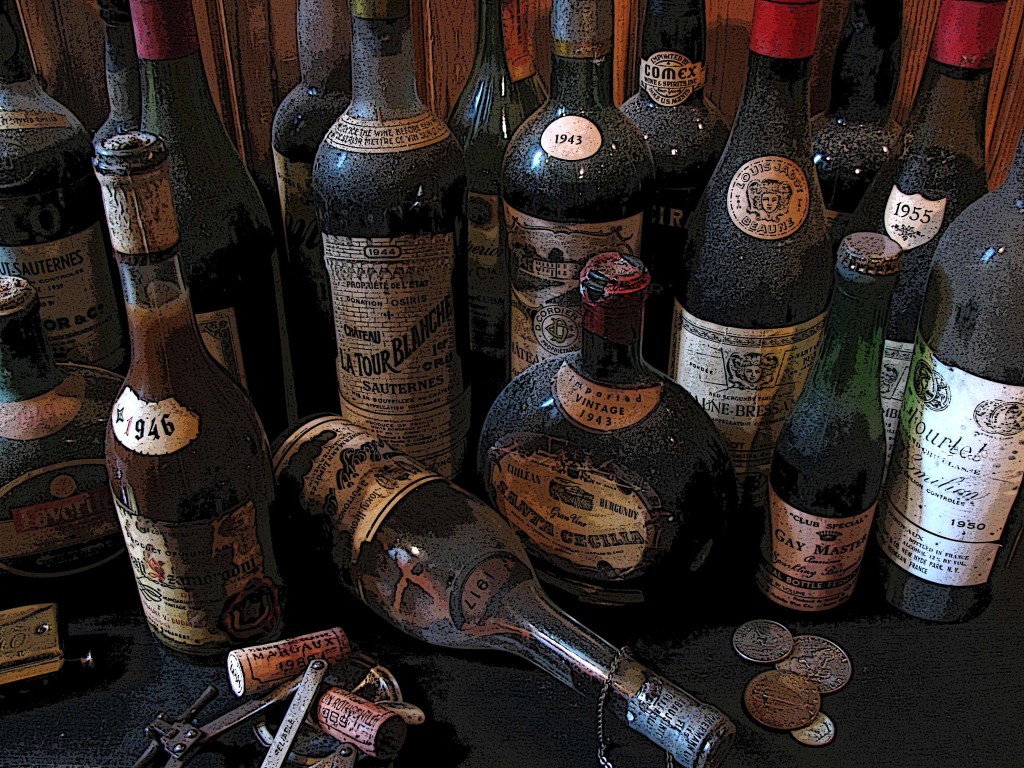

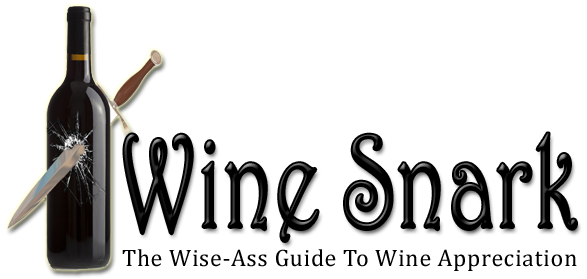
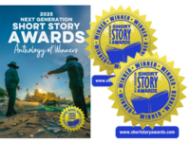
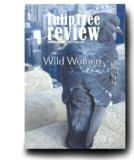
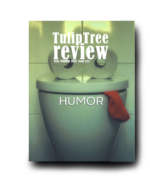
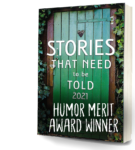


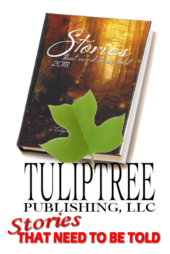













I remember that day Tess was trying to keep us busy and took us to that hobby shop. I got the plaster of Paris gorilla. I think yours was W C Fields. We learned technique and a lot more. I had that for years. Of course until I accidentally knocked it off the shelf and it shattered but when I say I had it for years. I mean years.
What a great memory. I remember when our folks got together to figure out ways to keep us out of trouble. This was probably one of those attempts. Tess taught us how to coat the figurine in black paint and then rub it off to add detail and shadow. I had my WC Fields for years too!
Your parents had us fix up the basement with bamboo curtains to keep us off the streets which worked for about a day.